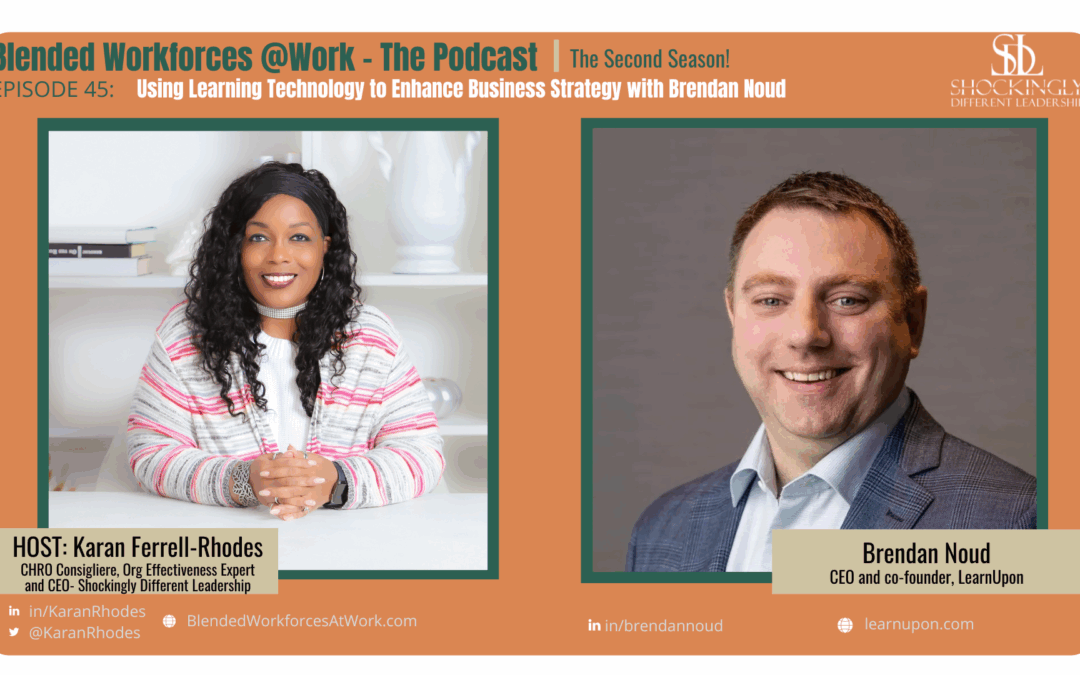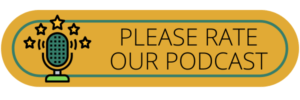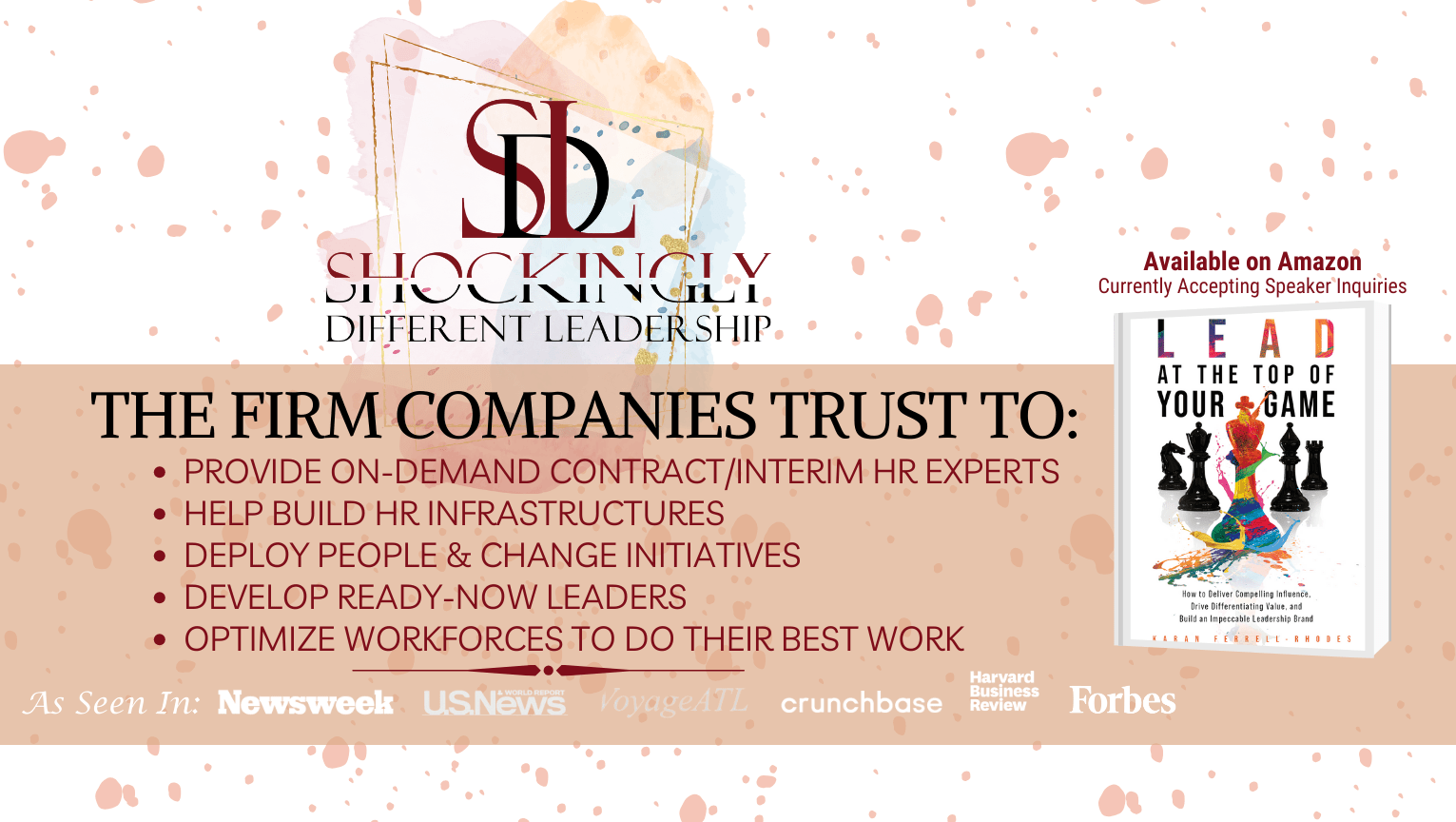Brendan highlights the importance of AI in enhancing administrative tasks and learner engagement. He also emphasizes the importance of businesses understanding their training goals and selecting LMSs that align with their specific needs.
Brendan Noud is the CEO and co-founder of LearnUpon, discusses the evolution of his learning management system (LMS) company. LearnUpon, which was founded by two individuals in 2012, and now employs over 300 people worldwide. LearnUpon prioritizes ease of use and learner experience, catering to diverse audiences, including employees, customers, and partners. LearnUpon’s success is attributed to its customer-centric approach, 24/7 support, and strategic partnerships.
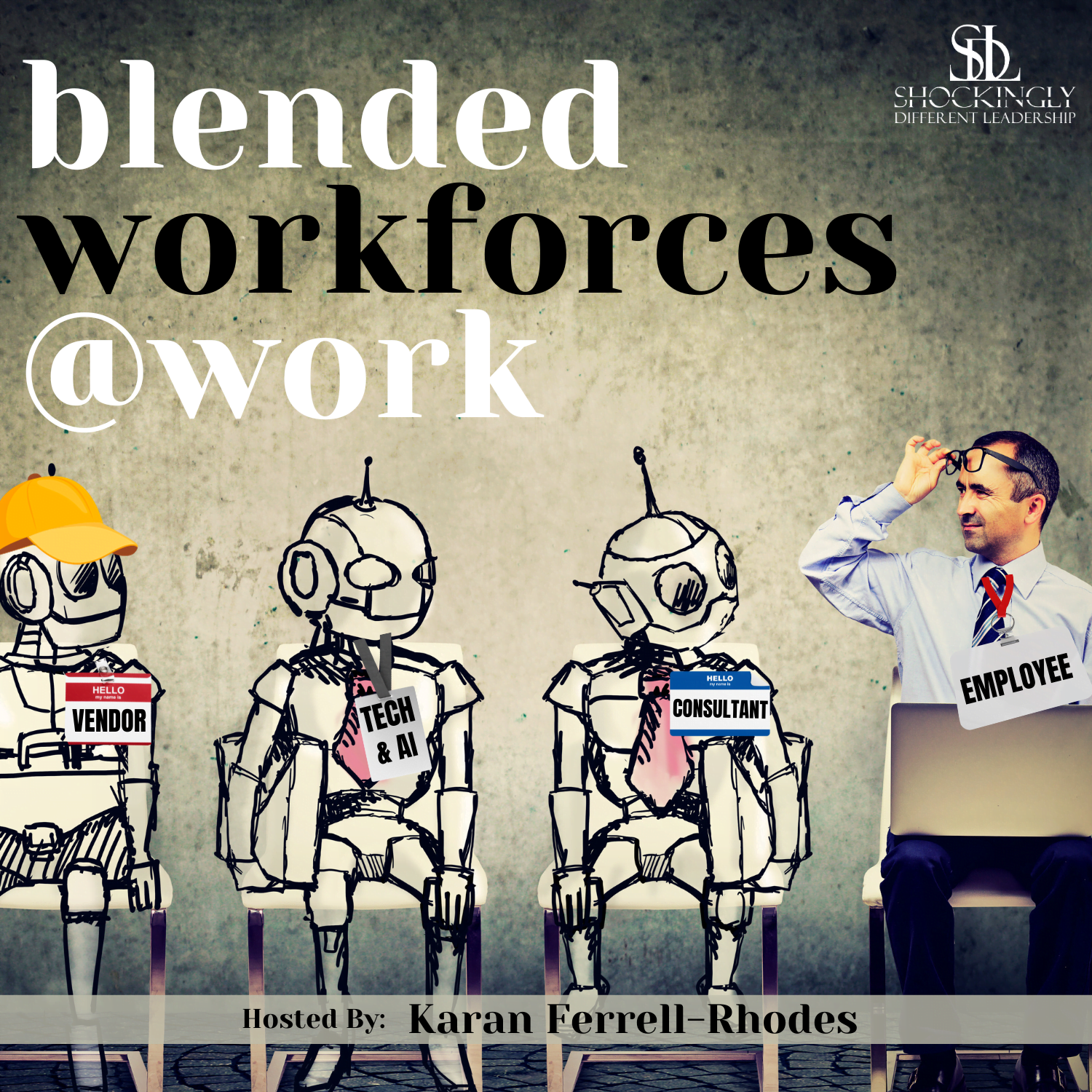
Posted by
SDL Media Team
Rather view our video podcast?

WHAT TO LISTEN FOR:
- Brendan’s path from consulting to founding LearnUpon.
- Early challenges and the global growth of LearnUpon.
- What makes LearnUpon’s learning management system (LMS) stand out?
- How AI is used to enhance the platform.
- Focus on customer partnership and 24/7 support.
- Brendan’s tips for choosing an LMS.
- How does LearnUpon handle customer feature requests?
- What trends or risks does Brendan see in the LMS industry?
“Really understand what you are trying to achieve.”
FEATURED TIMESTAMPS:
[00:36] Brendan shares his background.
[01:14] Founding LearnUpon and its global growth.
[06:45] Description of an LMS and LearnUpon’s unique features.
[09:02] LearnUpon’s customer partnership approach.
[11:19] Integrating AI into the platform.
[14:04] Challenges of building a US customer base.
[20:06] Signature Segment: Brendan’s entry into the LATTOYG Playbook: Advice for companies choosing an LMS.
[22:45] Industry trends and risks.
[25:16] Balancing customer requests with product vision.
[29:50] Signature Segment: Brendan’s LATTOYG Tactic of Choice: Drive for Results

Brendan Noud is the co-founder and CEO of LearnUpon. Having led LearnUpon since 2012, Brendan has used his 20+ years of experience in the learning space to drive the company’s fast growth. Now, with over 1,500 customers globally, the business is recognized as one of the most innovative learning solutions on the market today.
Prior to LearnUpon, Brendan worked with WBT Systems and KPMG Consulting, helping organizations implement learning management systems.
Today, in addition to leading LearnUpon, Brendan is a speaker on topics including, learning industry trends, building a start-up, and scaling businesses, as well as being selected as an Endeavor Entrepreneur, a global community of high-impact entrepreneurs.
LINKS FOR BRENDAN:
- Website: https://www.learnupon.com/
- LinkedIn: https://www.linkedin.com/in/brendannoud/
ADDITIONAL RESOURCES FOR YOU:


Episode Sponsor
SDL is the go-to firm companies trust when needing to:
- supplement their in-house HR teams with contract or interim HR experts
- implement leadership development programs that demonstrate an immediate ROI and impact on the business

Episode 45 | Using Learning Technology to Enhance Business Strategy with Brendan Noud
A learning management system, or LMS for short, is the platform that companies use to deliver online training. So if anyone has taken an online course, health and safety, InfoSec, whatever it might be, the platform you log into to take that course and the tracks that you did it and send you your reminders and award your certificates and things like that. That’s a learning management system.
Karan Rhodes 00:22
Blended workforces are one of the hottest talent strategies today, where employers are using a mix of traditional employees with external resources like independent contractors, coaches, consultants, vendors, and technology solutions, all in order to enhance competitiveness, ensure cost flexibility, and expedite business goals. But how are the successful companies infusing blended workforces into their business strategy? And what are the critical success factors and pitfalls to avoid during implementation? And on the flip side, what does it really take for suppliers to improve their chances of finding and landing contract opportunities? The devil is in the details, my friends! I’m your host, Karan Ferrell Rhodes, and it’s time to get smarter about Blended Workforces at Work! Hello, my superstars. This is Karan, and welcome to another episode of the blended workforces at work podcast we are absolutely thrilled to have on today’s show, Brendan now and Brendan. Brendan is the CEO and co founder of learn upon. And learn upon is a learning management system that helps create, deliver and track training for employees, customers, partners, our members and learn upon is a absolutely fantastic example of how the technology arm of blended workforces help companies upskill talent to get work done. So welcome to the podcast. Brendan,
Brendan Noud 01:15
Thanks. Karan, delighted to be on your show. So yeah, thanks for having me looking forward to the conversation.
Karan Rhodes 01:21
Same here, same here. And I told you right in our pre meeting, I’m a super fan of LearnUpon and have been following you for a bit, and I personally appreciate what a rich platform it is and how it helps companies and clients of all types, and we’ll delve into that during our conversation, but before we do so, we always learn to learn, always love to learn just a tad bit more about our guests. So for just as much as you feel comfortable, will you please give us a sneak peek into your life outside of work?
Brendan Noud 01:57
Yeah, thanks. Karan, yeah, so I’m from Ireland, so from the accent, you’ll probably get that. I live in a small village about an hour outside Dublin, and outside of work with two small kids. Daughter is six, and my son Connor, who’s four. So they keep me busy. And yeah, lots of their they’re getting into their sports now. So they have their swimming and their their football and and all that kind of good stuff. So I spend a lot of my weekends being, been a part time taxi driver and and, and then evenings helping out with with homework and things like that. So yeah, and then myself. Love sports myself, so it’s great. I’m trying to in Doctor the two the two kids into that so that they have the same love of sports as I have.
Karan Rhodes 02:44
Oh, well, I can appreciate that, because my I kind of grew up as a tomboy. My dad loves sports, and I love sports, so that was being, you know, the thing that made me cool with the guys when I was getting older, that there was actually a girl that knew a lot about sports that could talk, you know, about different types of teams, and it sounds fantastic. And I’m just curious, because you’re in Dublin right now. What’s the weather like there? Because we’re having a major heat wave in the US right now.
Brendan Noud 03:15
Yeah, so here it’s, at the moment, typical Irish weather. It’s like, kind of cloudy, overcast. We’ve had, we had an Irish heat wave the last couple of weeks, but it’s nowhere near what you guys are having in the east coast at the moment. We were hitting about like 70, 75 which is, yeah, it’s perfect weather, but so we’ve had that for the last few weeks, and so hopefully it’ll continue over the summer,
Karan Rhodes 03:40
Hopefully. So I’m waiting for it to break here, and it has been really nice up to this week and so, but it is a kickoff of summer, so it’s to be expected. But anyway, well, thank you so much for sharing Brandon, and let’s pivot a bit, and let’s talk more about your experience and learn upon but before we go there, I would love if you could maybe start with a few highlights or milestones of your professional career and what led you to become the co founder and CEO of LearnUpon.
Brendan Noud 04:16
Yeah, I started my career with one of the Big Five consultancy firms here in Ireland, KPMG, which, which was a great grounding. Actually, coming out of college, I knew I wanted to do something in business and but wasn’t exactly sure where to specialize. So going in as a graduate consultant into KPMG was a great learning curve for the first five years of my career. And from there, I moved at what my move into e learning and LMS, and where I ended up meeting my co founder with learn upon DES was I joined a company called WBT systems, who were one of the early learning management systems, again, an Irish company, and I spent eight years there. I became great friends with Dez and. And my passion for online learning, L and D in general, just really kind of sparked from there. I’m now over 20 years in the space. I love it. It’s constantly changing, and it is, it’s and it’s, yeah, it was a great opportunity. Got to work with some spent a lot of time in the States, working with some great companies on site really getting understand their business and how they were thinking about learning programs and the learning technology to support those programs. And that was, I guess, the stepping stone into myself and des thinking. Would we leave and and start our own company, which we did in 2012 with learn upon and, and that’s been an amazing journey over the last 13 years and counting. So yeah, we’ve, it’s been fun. We’ve, we’ve gone from the two of us, we started at the kitchen table back in 2012 and today we’ve over 300 people globally, with offices and in Dublin, Philadelphia, Salt Lake, Sydney, Belgrade and Serbia. So it’s, it’s been a really great journey. And yeah, get to work with amazing people every day, and get to work with amazing customers. And so, yeah, that’s kind of that the stepping stones. And yeah, it feels like, even though we’re at this a while, we’re still, we always say we’re only getting started, we’ve so much today.
Karan Rhodes 06:22
I can imagine, because you all have done so much in that short period of time. It’s simply amazing. Now, no, I did not do learn upon justice. So would you mind sharing with our listeners just a little bit more about what LMS is, because some of them may not understand, and just a few highlights on how you all serve your clients and customers.
Brendan Noud 06:45
Yeah, so a learning management system, or LMS for short, is the platform that companies use to deliver online training. So if anyone has taken an online course, health and safety, InfoSec, whatever it might be, the platform you log into to take that course and the tracks that you did it and send you your reminders and award your certificates and things like that. That’s a learning management system. So it’s a really interesting space. When myself and des started, we were really focused on ease of use and that learner experience, a lot of the solutions were kind of difficult to use at the time, and we were keen to build one that had a great learner experience, very easy for our customers to get up and running and be able to configure their learning programs and personalized learning programs across their business. And I guess the angle we took on it as well is not just about in training internal employees, but also external audiences. So a lot of our customers use learn upon for customer education, so training their customers on their products and services helping to onboard them efficiently and make sure that they understand how to use their products really well. And we also do partner onboarding and enablement and work with member organizations like professional bodies and associations and sporting bodies who use learn upon to deliver CPD training to their members or to train coaches and volunteers. So we work with the likes of USA Football, for example, which a lot of people, if you’ve gone to take your training, to be to coach your your kids team, and you do that through USA Football, that’s that’s delivered through learn upon,
Karan Rhodes 08:31
Oh, that’s amazing. I know you have tons of clients. I think it was over 1500 or 1600 clients across the globe, but I will say for me, you know, being in the human capital consultant and advisory space, I do know that there’s a ton of LMSs out there. And I’m curious, what do you all think is your differentiator that you bring to the table versus a lot of the other competitors.
Brendan Noud 09:02
Yeah, so you’re right. There’s a lot of a lot of different vendors out there. I think the thing we’ve really focused in is that partnership with our customers, so really understanding what the business goals are trying to achieve. And so from a customer success perspective, we assign a customer success manager to our customers, and we put a result strategy in place. So we see ourselves more than just a technology piece of software, but actually a true partner and thought leader for our customers, and in some ways, an extension of their team. So that’s that’s a big focus. And I think the other area for us is that idea of being able to train multiple audiences on our platform, so having different environments for your employee training versus your customer training or your partner training, and to be able to do that easily, to share content across those but also to delegate the responsibility across your organization and and I think the other side, we’ve constantly innovated and really continue to invest in the plan. Form. So today, obviously AI is really important, and we’re building that into our platform to just remove the admin overhead where we can. And we also think about embedded learning. So we’ve a product we recently released called Learn upon anywhere that allows our customers to embed training into different websites and third party apps, which, again, all around that idea of reduce the friction, make it really easy for learners to find the information or learning they’re looking for and to consume it with a great learner experience.
Karan Rhodes 10:33
Absolutely, I totally understand. Have so many questions in my head I’m trying to think of that the next one I’d love to ask. Well, let’s start here. You know, AI is the buzzword these days, although I always tell people AI has been around forever, ever, you know, coming from Microsoft, you know, we infused it into, you know, our software back back in the day. And you know, it’s just, you know, on everybody’s top of mind right now, just because of the great advancements. But how do does learn upon see AI helping be its platform or not? I mean, what is your take on how you’re infusing AI into your LMS?
Brendan Noud 11:20
Yeah, so it’s definitely the buzzword, for sure, and even though, I should say it’s been around for a long time, but has totally exploded in the last couple of years with chat, GBT and just yet, the whole focus on the area from our perspective, like we see AI as another tool that We can leverage in our platform, and we’re kind of very conscious on where we bring it into our platform. We don’t want to just put AI everywhere for the sake of it, but actually that we’re leveraging AI as just another tool, like all the technology in our platform, that it can have a real impact for our customers. So we think about it from two sides, one the administration side, and how can we put time back in our administrators day, whether that’s helping them to configure their their learning paths easier, if they’re building course content like exams that they can do that easily, leverage an AI and then validate it and add their own spin to it, but just take some of the manual overhead away, and then the other side is from that learner experience. So we have an AI coach that we release, a reflection coach. So again, just to reinforce learning, when someone finishes a course, we can see the impact. If you kind of nudge people with follow up questions on what they learned from a course, they’re going to remember that better. They’re going to apply it better in their day to day. So yeah, everywhere we think, we look at all the opportunities for AI across the platform, but we’re always bringing it back to will it add real value to our customers? And then we want to be very responsible at how we leverage our customers data and making sure that they understand. You know that we’re doing that in a responsible way, which is important as well, and that’s the feedback we’re getting from our customers, that they are they want to know that they’re working with a partner that is, is leveraging AI in the right way and and very mindful of of their data.
Karan Rhodes 13:15
That makes sense. And you know, you all are, although you are a global organization, you’re based, you know, in Dublin, but a lot of your customers, not all, but a lot of your customers, are in the US, which has its own crazy workforce dynamic. So I’m curious how, as you grew learn upon how tough was it to have a significant customer base in a country other than yours, because, I mean, you know, we’ve been flattening the world forever, right? Technology has done that, but sometimes there are challenges, you know, with different cultures and expanding business. So I’m curious how that journey, that part of your journey, has been.
Brendan Noud 14:04
Yeah, it’s a great question. Like we went because of our previous experience, and myself and des had spent a lot of time working with us customers in our previous jobs. Right from day one, we just wanted to go sell, learn upon into the US and break into the US. So I think our first 15 customers were all North America, before we got our first customer in Ireland. And yeah, and that’s continued true to this day, we’re very international. I think 98% of our customers are international, with about over 70% in the US. So the US is our core market, but it’s certainly when you’re a two person company, it brings its challenges. We were very passionate about the customer support side of things from from day one, we felt that could be a real differentiator for us. So we got some early customers in Australia, and the two of us did 24/7, support between us, like we literally did a shift through. To the middle of the night and hand it over to the other person. When we had we were bootstrapped for quite a while, so when we had enough customers and revenue to hire, we met our first hiring customer support to ease some of that load and and we’ve continued that. So we’ve done 24/7, support from the start, and we’ve got quite sophisticated. We have a great team now that a follow the sun model from Dublin hands over to our team in Philadelphia, to our team in Phoenix, through to our team in Sydney. But in the early days, the Dublin team did a lot of that. Today, we had to when we were hiring people, we were very upfront in the support team. We were like every second week you’ll be working nights. So one week you were doing nine to 6pm the second week you were doing 5pm to midnight and not potentially not getting home until 1am and the team were super they bought into the vision of what we were looking to build. And I think so it allowed us where all our most of our customers in the US are. Our idea was, if someone opened a ticket, we could answer it in five minutes, as if we were down the corridor from them, and and we delivered on that promise. And so it’s as we’ve scaled. It’s got easier, but it was something we had to be thoughtful from to start. We had to make sure we had a team that kind of saw the value in what we were trying to build, and the relationship we wanted to have with our customers. So it’s Yeah, and I think the other side, I think our US customers and they, I think they like the novelty of working with an Irish team as well. So that was the positive. And yeah, the first yearly customers were hard to get, but we very quickly built a reputation as being a great partner, and it got easier, and today, we’ve over over 1000 customers in the US, and a new ones signing up every day.
Karan Rhodes 16:50
That’s amazing. I’m just curious, how did you get your first customers? I mean, who did you target? Was it the HR talent development teams, or was it the CEOs? I mean, who was your who did you target and how to close the deal?
Brendan Noud 17:04
Yeah, in the in the early days, we focused on training companies, professional training companies, actually, who were looking to sell and deliver their content to their clients. And if their clients didn’t have an LMS, it kind of was a barrier to making that sale. So learn upon worked really well. We had a great feature set for that, and we had a an E commerce storefront. So we, we were very good at content marketing. We built a really good blog, very popular. Could get, put a lot of high value content out there, which drove traffic to our website, and that kind of got those early conversations and and then we kind of we did all our sales remotely over zoom. But once we could get the leads in, show them the platform, let them know what it’d be like to work for us, we started to convert customers. So a lot of online marketing, content marketing was the initial driver. And then over time, we started doing conferences and events and today, for North America, we’ve a sales team in Salt Lake City, so we’ve about 50 people there now. So that makes things a little easier.
Karan Rhodes 18:11
I’m sure it does, but I bet those early years, it was in that although it was kind of hard because you’re managing different time zones and sleep was probably not at a premium, but listening in on what were the issues or questions that your customers had gave a ton of data and insight for improvements. You know how to improve and customer experience overall, and for you all focusing on a bit in the US and, you know, how the US personalities can be. They demand high quality at all times, right? Yeah, I think that probably was one of your differentiating factors as well.
Brendan Noud 18:54
Yeah, absolutely. And I think the fact that we were like agile and quick, and, you know, we could take requirements from our customers that we were hearing regularly and quickly turn them around into the platform. And so it allowed us to evolve the platform very quickly over over our journey. And it’s, you know, it’s continued that continues true to this stage, we’re never stopped. There’s always more to do. And we have great customers who are, are always engaging with us and telling us what they’d like to see next. So it’s, it’s a great, great process.
Karan Rhodes 19:27
Yeah, it makes sense. Um, you know, we always love to try to give some tips to our listeners as well. And I’m just curious, you know, what advice would you give businesses and companies who are starting the process of upgrading or up leveling their investments in learning technology, any tips on approach or things to look out for how to screen because there are so many you. LMS companies out there, any advice you have as they start those journeys?
Brendan Noud 20:06
Yeah, I think, like, I would say, really understand what it is you’re looking to achieve. So who those audiences are you’re looking to train, and what kind of workflows and features you need. Because there’s a lot of, I think you can go out and get templates on the web, like for RFPs, that have like, three or 400 requirements, and you can get bogged down in that if you start going through a checklist of requirements, I don’t necessarily, I don’t think it’ll necessarily land you with the right partner. I think it’s better to step it up and go, what’s the business goals? What types of training? Who are we trying to train? And then from there, you can work out and actually, what’s the feature set we need here so you don’t end up with bloat in the partner that you select. And I think the other thing we see a lot is to make sure and think about the learner experience, because if that’s and to test that out and try it as you’re trying out different vendors, because if that’s not a great experience. Well, firstly, people won’t want to consume the content if they have a bad initial experience, or they won’t complete the courses and training programs, but, but secondly, you’ll end up with a lot of questions and a big support overhead, and that’s something where we focus a lot on with our customers that we can help like, you know, have very minimal questions coming through for our customers from our learners using the platform, and that allows them to focus on building out those programs that have a real impact. And I think the third area that’s always important is just those integration points from learn upon we focused on that in the early days to make sure we integrate with all the popular HRIS systems, with all the webinar tools, Zoom teams, Google meets, etc, integrate with your CRM like whether it’s Salesforce or HubSpot if you’re doing customer training, and to do that easily out of the box is is a massive time saver and just allows you to to if your learning management system integrates well with your other systems, the data and the insights you get is really powerful, because the learning data on its own is okay, but the real insights come when you combine it with data from your your CRM, for example, or your customer support platform, or whatever it might be. That’s how you can actually start to see the impact of your learning programs and the ROI that you’re getting from your investments.
Karan Rhodes 22:25
What is one area of concern or risk that you all are seeing in the LMS industry? What is something that’s always top of mind that you’re trying to keep your tabs on or thumbs on, that you’re looking to grow, learn from?
Brendan Noud 22:45
It’s, I think it’s to know, like there’s a lot of, as we said, there’s a lot of change in this space. There’s new waves and fads that come all the time over the last 20 years, every kind of 18 to 24 months, you see a new wave of this is the direction L and D leaders are going and how they think about their programs. And so I think for our perspective, we’ve always tried to be really thoughtful about those and go, Okay, which ones do we want to jump on board and invest in, whether it’s like skills or AI learning in the flow of work, and which ones we might want to maybe not invest in or sidestep a little bit. You know, a couple of years ago, LRS were popular, but now they’ve kind of, you know, not, not don’t come up as much. And there’s other there’s other ones like that. So we don’t get them all right, but I think it’s something that you need to be conscious of, and particularly if you’re embarking on a journey, um, as a new L, D leader, maybe looking to put your first learning platform in place is to make sure and to do your research and not to get too swayed by, okay, everyone is talking about this, because in 12 months time, they might not be, you know. So that’s, that’s the challenge. I mean, it’s also what makes the space really interesting, and it’s one of the reasons myself and des are we’re at this as long as we are, because you have no time to get bored. There’s always new things to be thinking about in making sure that learning programs are impactful and delivered in the right way.
Karan Rhodes 24:15
You know, that brings up, you know, something that is my industry background is very varied, but probably over half of my experience has been in the tech space and supporting tech companies. And there’s an interesting tension, if you will, between when you know, account reps or sales people talk with their clients, and then, of course, the clients have a whole, you know, feature list of requests that they would love to integrate into the basic system, while the engineers, you know, say, you know, we need lead time to be able to do that. And we have a whole other list of priorities, and sometimes to your point, fads. They come and go by the time it’s ready to integrate it. It may or may not be relevant. So I’m just curious of your insight or thoughts about the interesting tension between customer requests and then being able to fulfill them.
Brendan Noud 25:16
Yeah, it’s a great question, and it’s definitely a tension. It’s always a challenge we have. Like from our side, we take inputs from our sales team, they’re obviously at the front line, trying to close deals all the time, but also from our customer success and customer support teams, because our existing customers, it’s really important they’re successful on the platform. You also have analysts out there, and we take input from what they’re seeing and trends, and then we have our competitors and what, what are they doing, and what moves are they making? So when you blend all that together like you have to, you can’t do everything. You have to focus and figure out where, where you want to be best in class. And that’s something we spent a lot of time over the last 12 months or so, really zoning in on. You know, our, our what we would see as our ideal customers, our sweet spot customers, where learn upon is a really strong offering. And we when it comes to prioritizing what we build next, that’s what we keep asking ourselves, will this help our ideal customers? So those looking to do employee, customer, member training? And if yes, okay, let’s, let’s put it on our road map, but if it’s something that’s outlined outside of that kind of suite where we’re getting much better at kind of saying no and explaining to a prospect why we’re maybe not the right partner for them, because at the end of the day, we want to have our customers with us for years like our early customers are with us 1213, years. That’s something we’re very proud of. And so as new opportunities come in, as much as we want to win as many as we can, we’re also, I think, quite good at saying, you know, in this particular case, we’re not the best solution, and maybe you should look at these vendors instead. We think to be a better fit.
Karan Rhodes 26:57
And that’s very, very courageous to do. And I’ve, you know, learned that also being, you know, head of my own firm there, you know, all money is not good money, right? And you want to make sure your clients are extremely happy. And if you know that you’re not, maybe the right fit for them, because they have certain needs or requests that may not be ideal for your platform, it’s, it’s great to take care of them, you know, first, I think they appreciate it versus going down a road. Because, to be honest, listeners, LMS are not cheap. They’re not $25 you know, it it’s a big investment for a company. So once they make a decision on a vendor. It is a true, true partnership in getting it launched and implemented and leveraged and used in a very meaningful way for the business. Wouldn’t you say,Brendan?
Brendan Noud 27:52
yeah, absolutely. And the way we think about it as well as while we might not be the right fit for a particular opportunity today, the decision makers. There people in L D, they move regularly in their career, and they may move to another company, where we are a great fit, and we just want to make sure it’s a good experience. So even though we mightn’t be the right fit for the opportunity today, we want to try and add value, point them in the right direction. We know the space really well, and if, if there’s a vendor out there that will be a better fit. We’ll direct them towards that and and maybe three, four years down the line, that person will have moved to a different company, and they’re again looking for a new learning management system. And hopefully, if learnup is the right fit, that will be top of mind, they’ll remember the experience they had with us and we didn’t try and sell them a solution that wouldn’t actually fit their needs.
Karan Rhodes 28:43
No, that makes a ton of sense. Well, Brandon, before we let you go today, we, you know, we always have to ask you our guests, our signature question, and for my newer listeners out there, our company did research on high performing individuals and companies and what it takes to really be at the top of your game. And long story short, there were like seven main buckets that came out of our research, but we asked our listeners which one of the seven really popped for them. Well, all seven are equally as important, and you use them at different times. Usually there’s one that really resonates with our guests. And so Brenda was so kind to share that having a drive for results really resonated with him, and the way we define that is, you know, having a drive for results is all about being very tenacious, about ensuring your end goal is achieved, even if you have to pivot along the way, but it’s all About hopefully doing your best to achieve all goals and objectives. So curious ones want to know. Brandon, why did drive for results really resonate with you?
Brendan Noud 29:50
Yeah. Karan, well, I think, as we mentioned earlier, I think all seven definitely, on different levels, resonated and but to pick one, I think the one, and probably from our conversation. Question so far probably comes through like in learn upon we’re so focused about results, not just for ourselves as a company, which in a very competitive space, I think from the start, we’ve always set very clear KPIs and goals, and we’ve we’ve worked hard to achieve those. We communicate very widely across the business, with all our team what those goals and results are so everyone is bought into that journey. But the other side of that is our approach with our customers, putting a result strategy in place with them right at the start, really understanding the business drivers and how their learning programs can feed in to deliver those business results. Be that employee retention, you know, customer growth, member, member, engagement, whatever those results might be, we want to tailor a result strategy to them, and then every time we have a quarterly check in, or whatever it might be, we’re bringing up that results strategy to see if our customers are achieving those goals, and what we need to do to make sure that they are successful. So when I, when I read your that seven tactics, driver results, definitely popped out as something that we we think about a lot here in learn upon, and I think about on a personal level as well.
Karan Rhodes 31:16
Oh, that’s amazing. Well, you know, Brendan, you all do some fantastic things that learn upon like I said, I’m a fan from afar and and I personally thank you all for you know, being in the human capital space and knowing how important upskilling and development is to companies near And far, having such a platform that really helps customers achieve what they can for their clients, it’s just amazing, and I wish you all continued success at Learn upon now we will have all information about your bio and links and things in our show notes, but I always love to give our guests a little air time for the listeners to know where to find you. So if they were interested in learning more about learn upon and you Where could they reach out?
Brendan Noud 32:07
So the best place for information on Learn upon is to go to our website, www.learnappon.com, and for me, LinkedIn is probably where you get me best at Brendon now. So if you search, would be great to connect with any of year listers,
Karan Rhodes 32:21
sounds good and listeners now this spell n, o, u, d, just so, you know. So definitely look him up while you’re after you finish this episode and and check out. Learn upon because they’re they’re a fantastic company. Well, thank you so much, Brendan, For your gift of time. Today. You’ve been wonderful.
Brendan Noud 32:41
Likewise. Karan, thanks for having me on your show. It was great to chat to you today,
Karan Rhodes 32:45
Absolutely and thank you to listeners for the gift of your time, as well as I always say, we know there are literally millions of other podcasts you could be listening to out there, and we do not take your patronage lightly at all. All that we ask is that you like and subscribe to our podcast on your favorite platform of choice, and be sure to share with just one friend so that we can all be smarter about blended workforces at work. Thanks a ton. And see you next week. Well, that’s our show for today. Thank you again for listening to the Blended Workforces at Work podcast. You can check out the show notes, additional episodes, bonus resources, and also submit guest recommendations on our website at blendedworkforces@work.com. You can also follow me on Twitter, LinkedIn, Instagram or YouTube by searching for the name Karan Rhodes with Karan being spelled K a r a n. And if you like the show, the greatest gift you can give would be to subscribe and leave a rating on your favorite podcast platform of choice. This podcast has been a production of Shockingly Different Leadership, a global consultancy which helps organizations execute their people, talent development, and organizational effectiveness initiatives on an on-demand, contract, fractional, or project basis. Huge thanks to the SDL production and editing team for a job well done. Bye for now.

Want to be a Podcast Guest?
Check out our guest qualifications and submit our brief form to be considered.
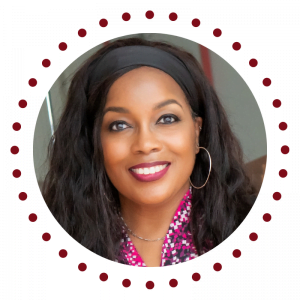
Want Karan to be Your Podcast Guest?
- Blended Workforces & the Gig Economy
- Critical Execution Tactics of High-performing Leaders
- Entrepreneurism & Leading Your Business
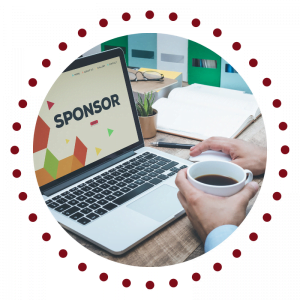
Want to be a Podcast Sponsor?
All sponsorships come with a featured spot on show notes pages.
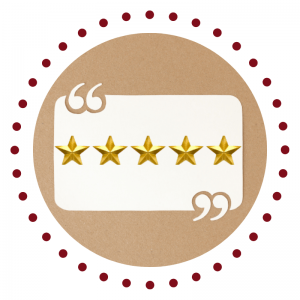
Like the Show? Please Leave a Review
If you like the show, it would mean the world to her if you left a quick review.
Your word is golden, so a HUGE thank you in advance!

#KeepInTouch
via our podcast alerts
Subscribe now to discover why thousands of monthly listeners who are passionate about doing their best work prioritize time each week to listen to the Blended Workforces @Work podcast.
#AboutSDL
#WhereToFindUs
MAILING
4480-H South Cobb Drive
PMB 219
Smyrna, GA 30080
PHYSICAL
2121 NewMarket Parkway
Ste. 108
Marietta, GA 30067
#ContactOptions
Customer Service Email:
service@shockinglydifferent.com
Call or Text:
770-384-1103
#Office Hours
MON-FRI
8:30 AM – 6:30 PM
Weekends By Appointment

